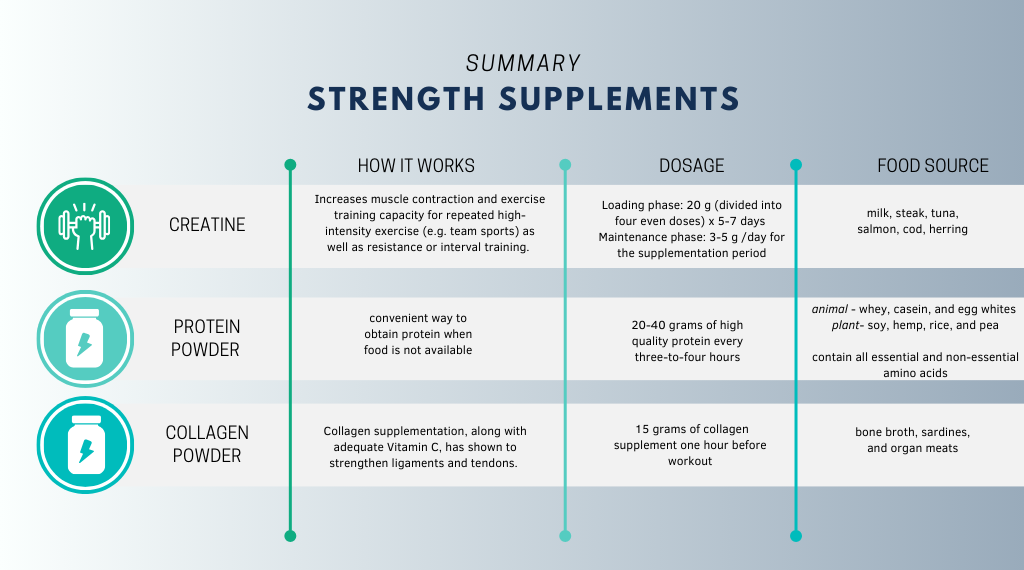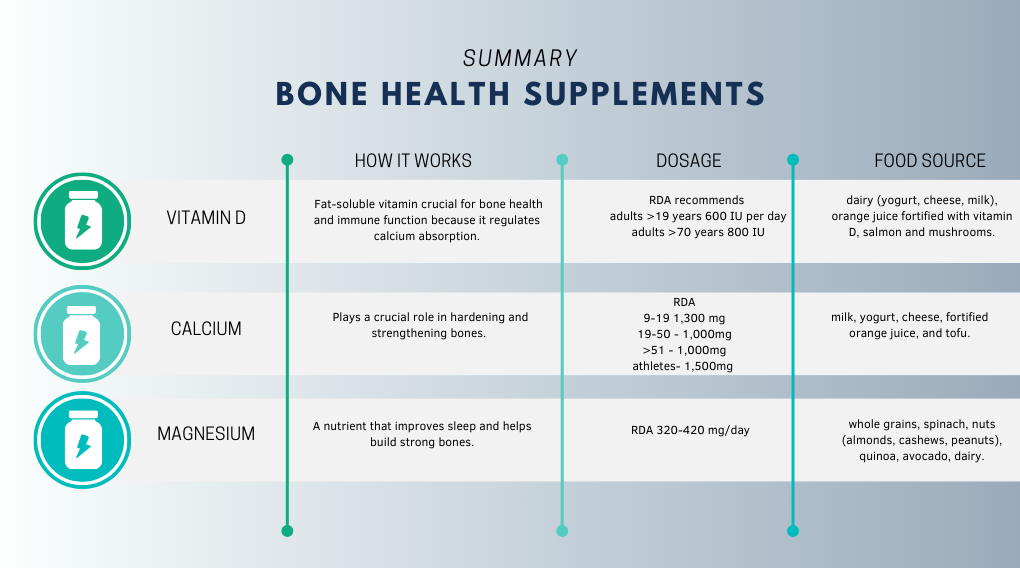Amy Stephens
MS, RDN, CSSD, CEDS
Licensed dietitian
specializing in sports nutrition
and eating disorders
MS, RDN, CSSD, CEDS
Licensed dietitian
specializing in sports nutrition
and eating disorders
About the authors: Amy Stephens, RD CSSD is a sports dietitian that works with NYU XC team and Empire Elite professional running team.
Liam Dee is a local elite distance runner and running coach with NY Run Academy. Liam is based in Brooklyn, New York.
The Importance of Supplements
The use of supplements within the world of sports and fitness is relatively widespread, being a means of addressing the various metabolic and dietary requirements of individual athletes.
Supplementation of nutrients is not seen as a replacement or alternative to a complete and balanced diet. Further, the degree to which a supplement is effective is varying given the range of products available in today’s market. However, if an athlete is following a well-rounded diet, comprehensive studies have shown some supplements to stimulate modest improvements in sports performance, muscle strength and injury prevention.
It’s important to note that not all products marketed as supplements are safe and effective; some can be ineffective at best and harmful at worst. Athletes are tempted to use any product that can give them an edge, so it is incredibly important to consult a professional and conduct appropriate research.
We’ve included the supplements that are most commonly used by the NY Run Academy staff. With the exception of creatine, the staff regularly uses the supplements listed below.

Food first
Supplements are intended to supplement a healthy diet, not take the place of nutrients from food. Obtaining nutrients from food can offer other health benefits such as fiber, micronutrients and other phytochemicals, and helps regulate satiety. Supplements, unlike food, are absorbed directly into the bloodstream and bypass the gut. The gut is our natural defense that helps to excrete toxins. If this step is missed, concentrated amounts of the supplement are delivered directly to the bloodstream and broken down by the liver. The liver has a significant role breaking down other foods and medications and supplements can interfere with these other important processes.
Supplement safety
Unlike prescription medications, supplements are not regulated by a governing body. Third party testing ensures supplements contain what is listed on the label and do not contain harmful ingredients. However, they do NOT test the efficacy of the supplement. Look for these seals that indicate third party testing – NSF or USP.
This is especially important for athletes that are drug tested, such as collegiate, professional and Olympic-level athletes. A positive drug test can disqualify an athlete from competition and result in a suspension or ban in the sport. See below for more information on banned substances.

Supplements are intended to supplement a healthy diet, not take the place of nutrients from food. Obtaining nutrients from food can offer other health benefits such as fiber, micronutrients and other phytochemicals, and helps regulate satiety. Supplements, unlike food, are absorbed directly into the bloodstream and bypass the gut. The gut is our natural defense that helps to excrete toxins. If this step is missed, concentrated amounts of the supplement are delivered directly to the bloodstream and broken down by the liver. The liver has a significant role breaking down other foods and medications and supplements can interfere with these other important processes.
Strength supplements
Creatine is one of the most researched and effective dietary supplements to improve muscle strength (Antonio et al., 2021). Creatine works by increasing intramuscular creatine which is a necessary step for energy production. Supplementing creatine increases muscle contraction and exercise training capacity for repeated high-intensity exercise (e.g. team sports) as well as resistance or interval training. This leads to greater gains in lean mass and muscular strength (Burke et al., 2023). It has also shown positive effects on bone mineral strength compared to placebo.
Dosage: The most common form is creatine monohydrate.
Loading phase: 20 g (divided into four even doses) x 5-7 days Maintenance phase: 3-5 g /day for the supplementation period
*According to the American Pediatric Association (APA), creatine is not recommended for athletes <18 years old.
Food sources: milk, steak, tuna, salmon, cod, herring (best source of creatine).

Protein powders are a convenient way to obtain protein when food is not available. Protein is composed of amino acids that are important for the growth of muscle, ligaments, tendons and support for the immune system. Our bodies require 20 different amino acids, of which nine are essential and we need to obtain them from food.
Animal-based protein powders that are made from whey, casein, and egg whites contain all the essential and non-essential amino acids.
Plant-based proteins such as soy, hemp, rice, and pea are complete proteins and contain essential and non-essential amino acids. Other complete sources of plant proteins are edamame, tempeh, quinoa, or buckwheat.
Dosage for protein powders: Studies show that 20-40 grams of high quality protein every three-to-four hours will promote muscle growth (Morton, et al, 2020).
Collagen powder is a type of protein derived from bovine (cows and pigs) that contains all nine essential amino acids. Collagen supplementation, along with adequate Vitamin C, has shown to strengthen ligaments and tendons.
Food sources: bone broth, sardines, and organ meats.
Dosage: 15 grams of collagen supplement one hour before workout (Shaw, et al, 2017).
Performance Supplements
Iron is an important nutrient for endurance athletes because it carries oxygen to produce energy. Low levels of iron mean that fewer red blood cells are available to carry oxygen. Oxygen is essential to power muscles and to remove metabolic waste so the body can function at peak performance. Many studies have reported the prevalence of iron deficiency in endurance athletes to be as high as 50% in females and 30% in males (Koehler, 2012). During a training block, iron can drop 25-40%. Populations are at risk for low iron menstruating females, endurance athletes, altitude training at altitude, those who under fuel or have a low calorie intake (RED-S), and those following vegan or vegetarian diet, as well as anyone with a history of low iron stores.
Symptoms of iron deficiency include lightheadedness, fatigue, irritability, and difficulty finishing a workout.
Food sources: beef, chicken, fish, lentils, beans, and tofu.
Dosage: RDA for men and postmenopausal women is 8 mg/day. For all other women the recommendation is 18 mg/day. Speak with your healthcare provider about iron supplementation.

Vitamin B12 is an important nutrient for healthy nerve functioning, metabolism, and prevention of a type of anemia in red blood cells (pernicious anemia). Vegans and vegetarians are at the highest risk for low B12. Signs of deficiency include extreme tiredness, fatigue, weak muscles and low energy stores.
Dosage: RDA 2.4 mcg
Food sources: salmon, cod, milk, cheese, meat, eggs, fortified breakfast cereals and nutritional yeast (vegan diet).
Dietary nitrate improves oxygen uptake during prolonged exercise. The ingestion of dietary nitrates leads to a higher concentration of nitric oxide (NO) in the body. Once in the bloodstream, nitrates help to deliver oxygen faster, delay fatigue and improve performance. Beet juice contains a high amount of nitrates and works by increasing oxygen delivery to muscles.
Dosage: At least 400 mg nitrate for at least five days. This can be accomplished by using the supplement Beet It. Drink one bottle of Beet It daily leading up to a race, then two bottles on race day. If you take it sporadically or less than five consecutive days, beet juice won’t be as effective.
Food sources: spinach, beets (fresh, roasted or added to a smoothie), celery, lettuce, and watermelon.
Sodium Bicarbonate is typically used by sprinters and mid-distance athletes. Sodium bicarbonate acts as a buffer for lactic acid build-up from anaerobic bursts of exercise. During intense exercise, lactic acid is a byproduct of energy production. As lactic acid increases in the muscles, muscle fatigue and soreness tell our bodies to slow down. Sodium bicarbonate acts as a base and prevents a buildup of H+ (acidic), thus, raising the pH during high-intensity exercise. The most common side effects from supplementation are GI symptoms (i.e. nausea, vomiting, stomach cramping). If you’re able to tolerate it, sodium bicarbonate (baking soda) can be effective for shorter, high-intensity exercises lasting 1-10 minutes. Maurten brand has a product that seems to be better tolerated. Research is being conducted on efficacy for longer distances such as half and full marathon distances.
Dosage (three options):
Caffeine has been shown to boost sports performance by reducing perceived exertion (delay fatigue), increasing endorphin release, and mobilizing fat for energy and sparing glycogen. The ingestion of caffeine blocks adenosine reuptake and promotes calcium release from sarcoplasmic reticulum which can help with muscle contractions. Caffeine ingested before and during an endurance event improves overall endurance capacity. Too much caffeine can cause GI issues, jitteriness, shakiness and nervousness, all of which are harmful to sports performance.
Dosage: One hour before a workout or race, 3-6 mg/kg caffeine to improve performance. Most individuals can drink a tall Starbucks or two shots of espresso (100-300 mg caffeine). Performance benefits were not shown with caffeine doses 7 mg/kg or greater.
Notes: Due to variability in caffeine content in brewing, consider standardized caffeine supplements like RunGum that have 50 mg caffeine per piece. Caffeine is most effective if all caffeine is stopped a couple days prior to “washout” caffeine from the body.

Beta-alanine acts as a buffer during intense exercise. Beta-alanine fights muscle fatigue by increasing carnosine concentration in the muscle, which is needed for rapid muscle contractions. The most common side effect is tingling in lips and fingers, but not as common with sustained release (SR) dosing.
Dosage: 3-6 grams per day x 4-8 wks
Klean athlete brand SR
Supplements for Bone health
Vitamin D is an essential fat-soluble vitamin crucial for bone health and immune function because it regulates calcium absorption. When Vitamin D levels are low, the body does not absorb as much calcium. It’s common for athletes to have lower Vitamin D levels in the winter when there isn’t as much sun.
Dosage: RDA recommends adults >19 years 600 IU per day and adults >70 years 800 IU.
Food sources include: dairy (yogurt, cheese, milk), orange juice fortified with vitamin D, salmon and mushrooms. Sunlight activates natural vitamin D in our skin and accounts for most of the Vitamin D in our bodies.
Calcium, along with consuming a diet with adequate calories, carbohydrates, and eating an adequate amount of calcium is critical to bone development. Calcium plays a crucial role in hardening and strengthening bones. Requirements are higher for athletes to replace calcium lost in sweat.
Dosage: The RDA for ages 9-19 is 1,300 mg, 19-50 is 1,000 mg /day and 1,200 mg for individuals 50 years and older. Some data has shown that athletes consume 1,500 mg a day. A combination of supplement and food can achieve calcium targets.
Food sources: milk, yogurt, cheese, fortified orange juice, and tofu.

Magnesium is a nutrient that improves sleep and helps build strong bones. Magnesium functions as an electrolyte to maintain blood pressure. In addition, magnesium helps regulate blood sugar control and acts as a cofactor that helps many enzymatic reactions take place.
Dosage: RDA 320-420 mg/day
Food sources: Whole grains, spinach, nuts (almonds, cashews, peanuts), quinoa, avocado, dairy.
Several other supplements are important to consider, namely, a multivitamin, Vitamin C, and omega-3 fatty acids. These become particularly relevant when meeting nutritional needs solely through food proves challenging.
References
Antonio, J., D.G. Candow, S.C. Forbes, B. Gualano, A.R. Jagim, R.B. Kreider, E.S. Rawson, A.E. Smith-Ryan, T.A. VanDusseldorp, D.S. Willoughby, and T.N. Ziegenfuss (2021). Common questions and misconceptions about creatine supplementation: What does the scientific evidence really show? J. Int. Soc. Sports Nutr. 18:1–17.
Burke, R., A. Piñero, M. Coleman, A. Mohan, M. Sapuppo, F. Augustin, A.A. Aragon, D.G. Candow, S.C. Forbes, P. Swinton, and B.J. Schoenfeld (2023). The effects of creatine supplementation combined with resistance training on regional measures of muscle hypertrophy: A systematic review with meta-analysis. Nutrients 15:2116.
Jones AM, Thompson C, Wylie LJ, Vanhatalo A. Dietary Nitrate and Physical Performance. Annu Rev Nutr. 2018 Aug 21;38:303-328. doi: 10.1146/annurev-nutr-082117-051622. PMID: 30130468.
Kaviani, M., K. Shaw, and P. Chilibeck (2020). Benefits of creatine supplementation for vegetarians compared to omnivorous athletes: A systematic review. Int. J. Environ. Res. Public Health 17:3041.
Koehler K, Braun H, Achtzehn S, Hildebrand U, Predel H-G, Mester J, Schänzer W (2012) Iron status in elite young athletes: gender- dependent influences of diet and exercise. Eur J Appl Physiol 112(2):513–523.
Maughan, R. J., Burke, L. M., Dvorak, J., Larson-Meyer, D. E., Peeling, P., et al. (2018). IOC Consensus Statement: Dietary Supplements and the High-Performance Athlete, International Journal of Sport Nutrition and Exercise Metabolism, 28(2), 104-125.
Morton RW, Murphy KT, McKellar SR, Schoenfeld BJ, Henselmans M, Helms E, Aragon AA, Devries MC, Banfield L, Krieger JW, Phillips SM. A systematic review, meta-analysis and meta-regression of the effect of protein supplementation on resistance training-induced gains in muscle mass and strength in healthy adults. Br J Sports Med. 2018 Mar;52(6):376-384. doi: 10.1136/bjsports-2017-097608. Epub 2017 Jul 11. Erratum in: Br J Sports Med. 2020 Oct;54(19):e7. PMID: 28698222; PMCID: PMC5867436.
Shaw G, Lee-Barthel A, Ross ML, Wang B, Baar K. Vitamin C-enriched gelatin supplementation before intermittent activity augments collagen synthesis. Am J Clin Nutr. 2017 Jan;105(1):136-143. doi: 10.3945/ajcn.116.138594. Epub 2016 Nov 16. PMID: 27852613; PMCID: PMC5183725.
Stellingwerff, T., Bovim, I. M., & Whitfield, J. (2019). Contemporary Nutrition Interventions to Optimize Performance in Middle-Distance Runners, International Journal of Sport Nutrition and Exercise Metabolism, 29(2), 106-116.
Wylie, L., Bailey, S., Kelly, J., Blackwell, J., Vanhatalo, A., Jones, A., Wylie, L. J., Bailey, S. J., Blackwell, J. R., & Jones, A. M. (2016). Influence of beetroot juice supplementation on intermittent exercise performance. European Journal of Applied Physiology, 116(2), 415–425.
Wyss, M., and R. Kaddurah-Daouk (2000). Creatine and creatinine metabolism. Physiol. Rev. 80:1107–1213.
Lorem ipsum dolor sit amet, consectetur adipiscing elit. Ut elit tellus, luctus nec ullamcorper mattis, pulvinar dapibus leo.
Licensed dietiTian
specializing in sports nutrition and eating disorders
© Amy Stephens Nutrition
SITE BY 744 CREATIVE